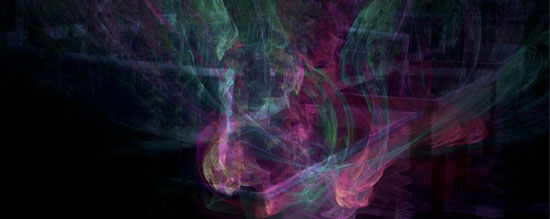Reactscape device:space
LA 4101 . Illustrating Ecologies

course website lab.visual-logic.com
syllabus (PDF)
[email protected]
office hours: M 11:30-12:30 or by appt.
Class Meeting Time: W 8:30-11:30
Premise
This advanced research seminar will explore animating and modeling ephemeral ecological systems. Students will be asked to research ecological processes or constructed systems and deconstruct the process through modeling and animation. Students will learn techniques necessary to model ephemeral processes such as wind, fire, earth and water using particle systems and other techniques that are at times simulations and at other times illustrations. Digital representation will be combined with field observations of ecological processes through recording methods such as video, photography, sensing and sketching in order to fully understand the complex processes that will be illustrated.
As a research seminar students will become experts on specific software, representation techniques, and their chosen ecological system. This information will be documented at lab.visual-logic.com to serve as a resource for the seminar and outside collaborators.
Pedagogical Objectives
- Develop an observation method to document ephemeral ecological systems.
- Clearly define the scope of an ecology or ecological system.
- Create a comprehensive body of research, including scientific and anecdotal evidence to describe an ecological system.
- Design an exhibit using analog and digial media to express the intricacies of the ephemeral ecologies.
- Document the representation and research process.
- Develop a representation method and document the procedures.
- Apply knowledge from research to the representation and simulation process.

Procedure
Students will work in pairs to complete all phases of work during the semester; ecological system research, software/tool review, technique documentation and the exhibition. All sources must be cited.
Ecological System Research
Each group will define an area of research focusing on a specific ecological system. For the purpose of this seminar ecological system will define naturally occurring and/or constructed/reconstructed systems. Typically ecology refers to the relationship of organisms to one another, or in terms of human ecology the relationship of human beings to the environment. You are asked to define an ecological system and to create a body of research to support the representation of the components of the ecology.
The research must be comprehensive, concentrating on the following elements; overall system/framework, relationships of elements (flora, fauna, etc), relationship to larger systems, temporal change, ephemeral qualities, perceived experience and physical relationships. Each group will create a page on the lab.visual-logic.com website that will be used to compile and analyze the research. The group is not limited to a single page for the research and is encouraged to develop a hierarchy of pages to fully explain the chosen system.
Software/Tool Review
The tools necessary to create compelling digital representations are complex and not specifically tailored to the design professions. Each group will choose a specific digital tool in order to research and review the tools ability to create ecological illustrations. The review should contain; an overview, specific application and examples. Students can choose from the following software and/or tools to create their review:
- Particle Flow . 3ds max
- Reactor . 3ds max
- Polygon and Nurbs Modeling
- Vue xStream
- Autodesk Civil 3d
- Fluid Dynamics . Maya
- Adobe After Effects
- CAD/CAM . 3d Printing/Laser Cut
- GI Systems . Mental Ray, Vray
Students may also choose another software/tool if approved by the instructor.
Technique Documentation
It will be necessary to understand and share techniques that are developed to represent the researched ecologies. Each group will document two techniques that they develop. The techniques may be original or derived from other work and/or tutorials. Each technique should apply specifically to representing a component of the researched ecological system and therefore should not be generic.
The documentation will show the representation process step-by-step and explain not only how it is done but why this technique is appropriate. The documentation should contain images and/or screenshots and may benefit from source files to allow others to work their way through the process.
Exhibition
The culmination of the semester will be an exhibition that represents the researched ecological system as a framework, process, and experience. Each group will determine, based on their research, the appropriate methods to represent each of these modes. This will be accomplished through prototype models, animations and/or illustrations.
Framework . a basic structure underlying a system or concept.
Process . a series of actions or steps taken in order to achieve a particular end or a natural or involuntary series of changes or a systematic series of mechanized or chemical operations that are performed in order to produc or manufacture something.
Experience . (noun) practical contact with and observation of facts or events or an event or occurence that leaves an impression on someone. (verb) encounter or undergo or feel.
Each group will be responsible for designing and creating a stand alone exhibit that works with each of the other groups in the class as a single exhibition. The students and professor will decide on a series of common attributes that will be similar across the group work.
Website
All of the work in the seminar will be documented at lab.visual-logic.com. Each student will have an account on the website and will be required to contribute to their group research, review, and documentation.
Schedule
2 Responses to LA 4101 . Illustrating Ecologies
Leave a Reply
You must be logged in to post a comment.
Pingback: LA 4101 – Illustrating Ecologies
Pingback: LA 4101 . Illustrating Ecologies